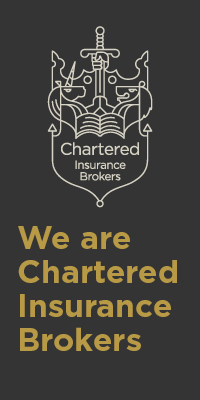Is your health and safety up to scratch?

Employers’ liability claims in the manufacturing industry
Employers’ Liability insurance is a legal requirement for the majority of business owners – whether you’re a small office of 3 staff or a large operator employing hundreds – and with the frequency and cost of claims continuing to escalate, there has never been a more important time to ensure you have the right cover in place.
Specialist insurance broker, Russell Scanlan, has experienced a worrying trend of increasing premiums for Employers’ Liability cover, in part driven by a dramatic cut to the Ogden Discount rate in early 2017. The rate takes into account the potential interest claimants can expect to earn on a pay-out.
As one of the highest risk business sectors, many manufactures have been hit hardest by these price rises. Here, Development Executive at Russell Scanlan, Roger Cawkwell, discusses some of the steps manufacturing businesses can take to help bring these rising costs down.
We see claims against manufacturers making national headlines every few months – whether it’s an ex-miner suffering from noise-induced hearing loss as a result of work 30 years ago, an historical asbestos claim, or a worker who was injured at work recently. Frequency of settlements has increased and claims can go back decades. It is easier than ever to make a claim against your employer, with hundreds of “No Win – No Fee” and low-cost law firms at the ready to help you with your case.
There is no escaping the fact that the manufacturing sector can hold higher risks of employee injury than other business sectors, with over 80,000 workers in the industry suffering from a work-related illness or injury each year. Falling objects, defective equipment, excessive noise and falls from height are just some of the many risks associated with heavy machinery and factory environments.
The law stipulates that both employers and employees adhere to the safety regulations that ensure the workplace is a safe environment to work in – but if the worst was to happen, the responsibility more often than not falls to the employer to pay out.
The Lord Chancellor’s slash to the discount rate from 2.5% to – 0.75% has meant that lump sum settlements for those injured in an accident at work may be significantly higher, resulting in greater financial losses for insurers. As a result, they have had to ‘top up’ their financial reserves by increasing the cost of cover for their customers, with very little flexibility. This decision has inevitably shaken the insurance industry and has been faced with heavy backlash, with the ABI labelling the changes ‘crazy’.
Other factors, such as rising costs of long-term after care following an accident, paired with longer life expectancy and the increased level of claims, also contribute to increased claims settlement costs and subsequently higher insurance premiums for everyone.
Of course, an injured workforce doesn’t just mean costs for claims settlements. Other expenses can include lost production, increased staff overtime, temporary staff fees and additional recruitment and training.
If you’re concerned about increasing costs, there are many things that you can do to mitigate work place accidents/illness and help lower premiums when renewing your policy:
- Manufacturers should be able to demonstrate a commitment to safe working practices and environments. Robust health and safety procedures should be introduced, rigorously enforced and reviewed annually.
- Go that one step further to ensure your employees’ health is of utmost importance e.g. provide the opportunity for hearing tests in “noisy” work settings to detect potential noise induced hearing loss. Early identification and intervention will reduce both absence levels and claims.
- Drill down into your health & safety procedures to minimise the risk of a claim as much as possible. Are all perceived eventualities covered? Have lessons been learnt from previous incidents? Less risk of claim means a lower premium from your insurer.
- Ensure your work force is fully briefed. Every new starter must have health and safety training, with top up courses available every few months for every member of staff.
- Full training should be provided for all aspects of work on site, for example correct manual handling and working at height etc.
- Ensure that you have maintained a thorough “paper trail” in order to evidence your health and safety regime. Make sure employees sign for PPE and training etc. This will help your insurer defend claims.
- Introduce a clear and simple reporting system for every member of your team for any potential sources of risk within your business. Each note can then be fully investigated within a time limit set out by management.
- Assess your limit of indemnity. Higher claims settlements may mean that the standard £10m limit is potentially insufficient.
Make sure your insurance broker has as much information as possible about these procedures and standards because insurers may not always ask for them. The more information provided will enable your broker to negotiate a better rate for you.
The battle between insurers and the government to change the widely-contested Ogden rate is ongoing. The Lord Chancellor has revealed tentative plans to raise the rate again at some point this year – but with no guarantee or set date. There is also concern amongst insurance brokers that these changes won’t change premium prices for customers – as insurers will want to make up for the losses they have experienced over the past year.
Whilst we all agree that genuine claimants should receive a fair claims settlement, insurers will continue to argue that the continued frequency and cost of claims justifies the rate rises being imposed on all policy holders.
We will be sure to keep our clients up to date with any changes in relation to their employee liability rates. If you have any questions, or would like to talk to a member of our team for advice on how to help bring down your costs, give us a call on 0115 947 0032.










